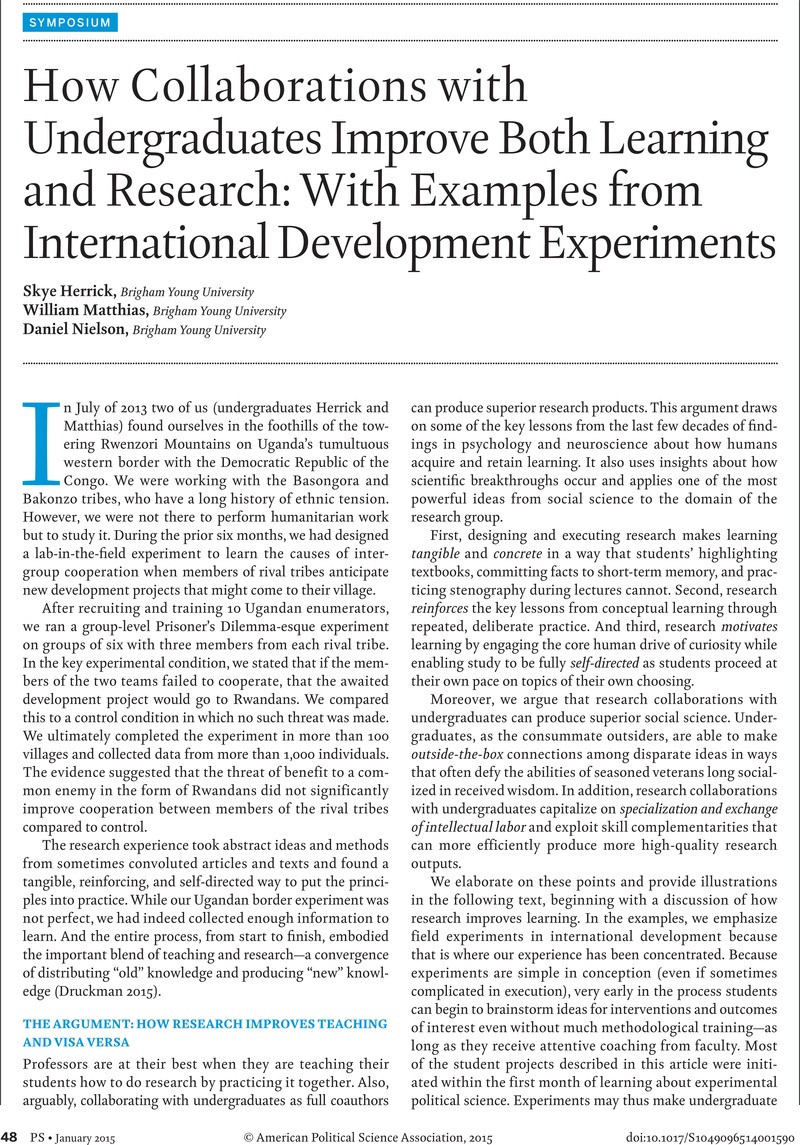Crossref Citations
This article has been cited by the following publications. This list is generated based on data provided by Crossref.
Kenyon, Kristi Heather
2017.
Bringing the field into the classroom: Methods and experiential learning in the ‘Politics of Development’.
Politics,
Vol. 37,
Issue. 1,
p.
97.
Dean, Laura
2021.
Pedagogical Approaches to Human Trafficking Through Applied Research Laboratories.
Anti-Trafficking Review,
p.
56.
Weinschenk, Aaron C.
2021.
Creating and Implementing an Undergraduate Research Lab in Political Science.
Journal of Political Science Education,
Vol. 17,
Issue. sup1,
p.
284.



